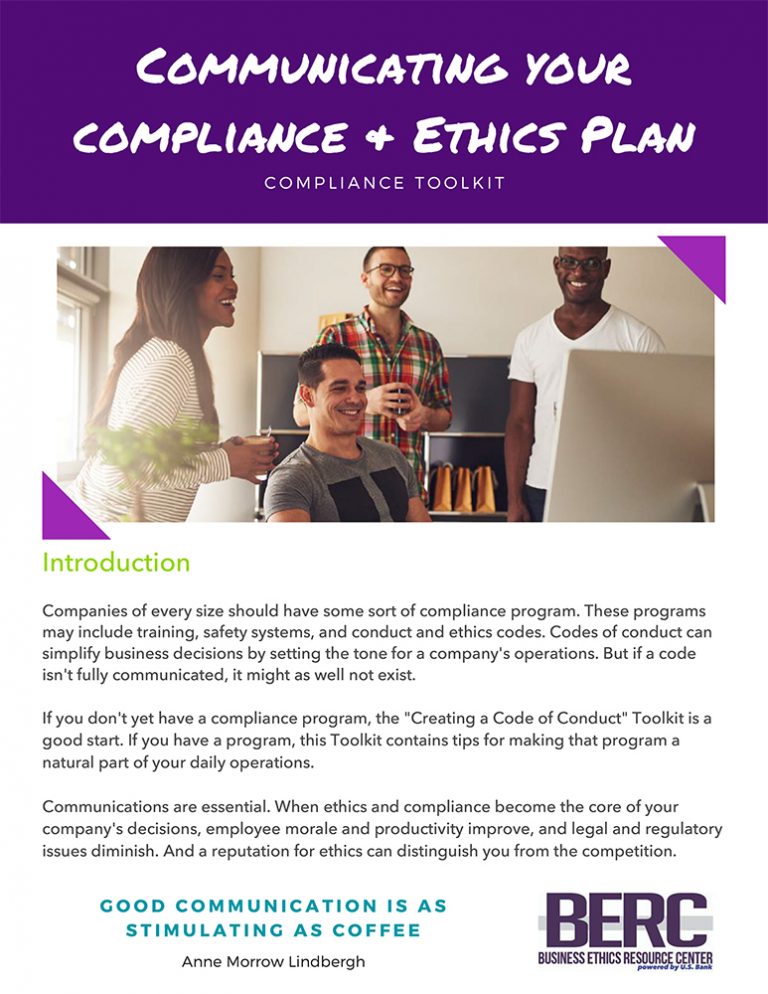Your small business is always vulnerable to financial mismanagement ranging from employees “skimming” money occasionally, to serious, long-term embezzlement. But there are many steps you can take to mitigate your vulnerabilities.

In our survey of small business owners and managers on protecting one’s business, nearly two-thirds reported being “somewhat concerned” or “very concerned” about ethics in their business’s financials. It’s an understandable anxiety — the avenues for financial misconduct are many and varied.
It’s difficult to safeguard your financials against all ethics challenges, but fortunately these steps can help you start to protect your business today.
Explore outside business financial services
You can begin to protect your business against financial misconduct by using one of a variety of treasury management services available through your banking partner. Shad Bris, Business Banking sales manager for U.S. Bank in Bellevue, Washington, has a variety of recommendations.
“It’s important to have systems and structures in place that are simple to audit,” Bris says. “There’s so many different products that banks offer, for example: a check-verification system that lets the owner authorize all checks written by others.”
Other commonsense processes in business financial services are designed for small business owners to ensure that multiple people are aware of every transaction, offering increased oversight and accountability. For instance, you can require dual signatures on all checks over a certain amount.
“As your business grows, you have to grow your infrastructure to ensure that you have internal checks and balances,” says Javier Iglesias, a U.S. Business Banking sales manager in Orange County, California “For example, one person shouldn’t have sole authority over the money or have full authority to act on behalf of the business — that includes even your family members.”
Implement outside audits
Bookkeeping is one area that’s particularly susceptible to ethical problems.
“There’s a lot of trust given to the bookkeeper, and many mistakes made by the bookkeeper allows them or others to get away with embezzlement,” Bris says.
Having an outside auditor come in at least once a year, preferably at an unexpected time, is key. This practice ensures that those with access to the accounts would not have a chance to “clean things up.” Auditors can catch mistakes, of course, but they may also be able to flag irregularities that signal something more severe.
Make long-term, ethical partnerships
While treasury management and a good audit can help you avoid outright embezzlement or other illegal activity, there is also the serious question of how to deal with and prevent business financial activity that falls into a “gray zone” — activity that is not illegal, but is counter to the spirit of your own values as a businessperson.
“A lot of business owners focus on the current year only and what kind of revenue they want to make,” Iglesias says. “But business owners should think more broadly. You can’t always, for example, just go to the lowest-cost provider in every area for your CPA, your attorney, or your banker. Thinking more broadly and looking ahead helps avoid problems down the road.”
One way to avoid gray-zone problems is to pick your partners wisely.
“We have many Type-A business owners who want to do well,” Iglesias says, “but if you have good partners who will challenge what you do, they will help keep you honest.”
Try the “grandma test”
Ultimately every business decision large or small should be subject to what is sometimes called “the grandma test.” Ask yourself: If your grandmother were a customer or stakeholder, would this action benefit her?
Asked another way, if your actions were discovered and broadcast on the news, would you be ashamed? If it would not benefit your grandmother, and you might be ashamed if it were found out, those are two good signs an action or practice should be avoided.
If, as a businessperson, you can honestly say that you’ve built systems to protect your finances, think for the long term, have partners who challenge you, and your actions pass the “grandma test,” you’re probably well on your way to ethically sound financial practices.
Many small businesses are investigating ways to create a culture of ethical governance. Consider these best practices to help you get started.
This article originally appeared on U.S. Bank’s Financial IQ site. Used by kind permission of U.S. Bank.



Recent Comments